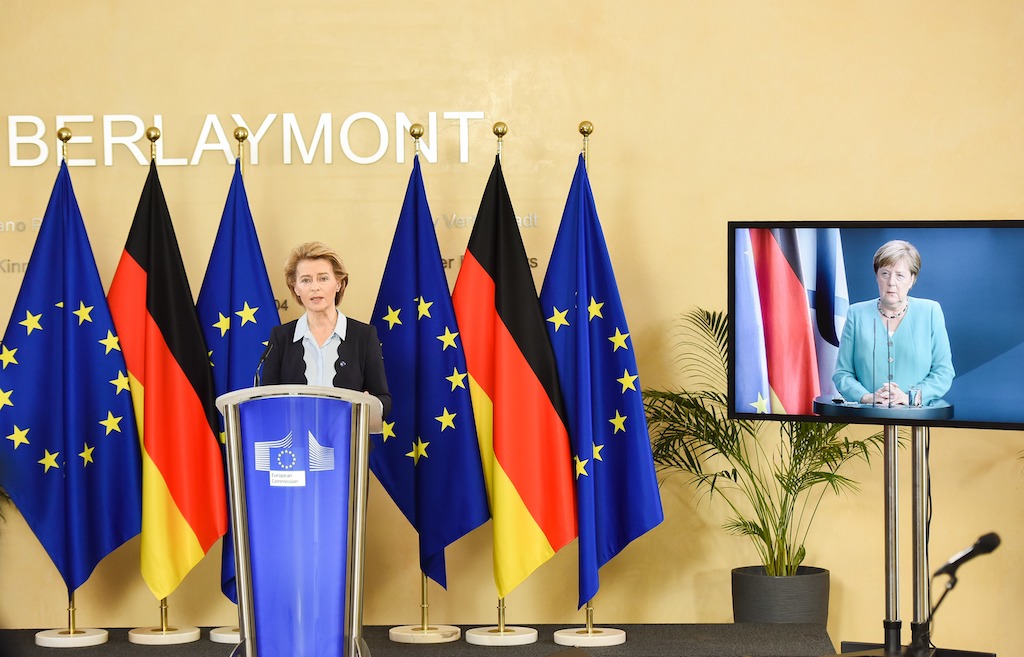Berlin could destroy the last vestiges of budget discipline in the EU
Once a staunch defender of financial responsibility in the EU, Germany has thrown its support behind the European Commission’s ill-conceived, unwarranted and politicized budget scheme to aid the eurozone’s economy.

On July 1, Germany assumed the presidency of the European Union for the second half of 2020. The first major matter that Chancellor Angela Merkel faces is a financial aid program devised by the European Commission for the euro area’s economy. It includes a seven-year stimulus package worth 1.1 trillion euros and a 750 billion-euro Covid-19 recovery plan. The program is meant to help restart the post-lockdown European economy.
In 2010, when Greece, a eurozone member, was on the brink of financial collapse, Chancellor Merkel steeled herself to break the EU’s no-bailout rules. These stability principles and the 3 percent public spending ceiling were devised to allow the establishment of a common currency. At the time of the Greek drama, Ms. Merkel famously said that, “If the euro fails, Europe fails,” meaning there was no alternative to violating these rules and proceeding with the financial help. She argued, with no solid factual basis, that Greece’s bankruptcy would trigger a domino effect. Even though the adoption of the euro had been detrimental to the Greek economy, Athens had to be kept in the eurozone despite not meeting the common currency requirements.
Lesson ignored
Greece was bailed out. It had to submit to a severe austerity program that crippled many citizens and businesses. Today, it is apparent that sticking to eurozone rules could have led that country to bankruptcy, but this might have been the less painful path. Had it been allowed to drop the common currency Greece would have recovered faster. It is regrettable that Ms. Merkel had so little confidence in Europe’s resilience. Both the European project and the euro would have survived a Greek collapse.
All this is history now. The chancellor was not alone, of course, in flouting the stability rules. However, she helped establish a dangerous precedent, opening the doors to more and more abuses of the euro, which could eventually lead to its end as a viable currency.
The most significant danger is the emergence of a permanent transfer union under the false pretext of solidarity.
Apparently, history is repeating itself. The new budgetary scheme, introduced to advance short-term political goals, threatens to damage the euro and undermine EU cohesion in the long term. If adopted, it would amount to another triumph of centralist principlism and political scheming over responsibility in European policymaking. The fundamental differences between Germany and France notwithstanding, what unites Ms. Merkel and French President Emmanuel Macron is their shared vision of centralized power and their knack for dodging the difficult challenges – consequences be damned.
The Commission’s proposal, supported by Paris and Berlin, is to finance the stimulus program with debt issued by the European Union in capital markets (which sounds harmless but might, in fact, mean the European Central Bank). The money given to EU member states would not need to be returned. In the final analysis, the EU taxpayers, not Brussels, would be liable for that debt. The scheme amounts to a new breach of EU rules.
The EU will increase its power over member states and bid goodbye to its last hope for budgetary discipline. The cost of any financial aid must be amortized. Otherwise, recipients will not value the largesse.
The most significant danger to the union’s health is the emergence of a permanent transfer union under the false pretext of solidarity. The coronavirus crisis will be politically misused to “harmonize” Europe’s economies, damaging its variety – the source and essence of the continent’s strength.
According to Ms. Merkel, however, the project is again “alternativlos” (alternative-less). If it fails to pass, she claims, Europe will stehen vor dem Nichts (be left with nothing). As with Greece in 2010, the chancellor of Germany is likely to bully other states into accepting the policy, to the detriment of Europe’s longer-term financial responsibility as well as its monetary and fiscal interests.
The so-called “frugal four” – the Netherlands, Austria, Denmark and Sweden – oppose the proposal. Like Germany, they are net contributors to the EU budget. Fearing an end to any semblance of budget discipline, they demand that the stimulus and stability grants be made repayable. Also, they request that the program be limited to two years and that the funding allocation and monitoring process be made clear beforehand. In the long-term interest of a robust, competitive, market- and freedom-based Union, the European Commission’s plan should be amended along these lines.
Unfortunately, it appears that it will be pushed through in its current state during the German presidency, even though the scheme represents a paradigm shift in Berlin’s policy.
